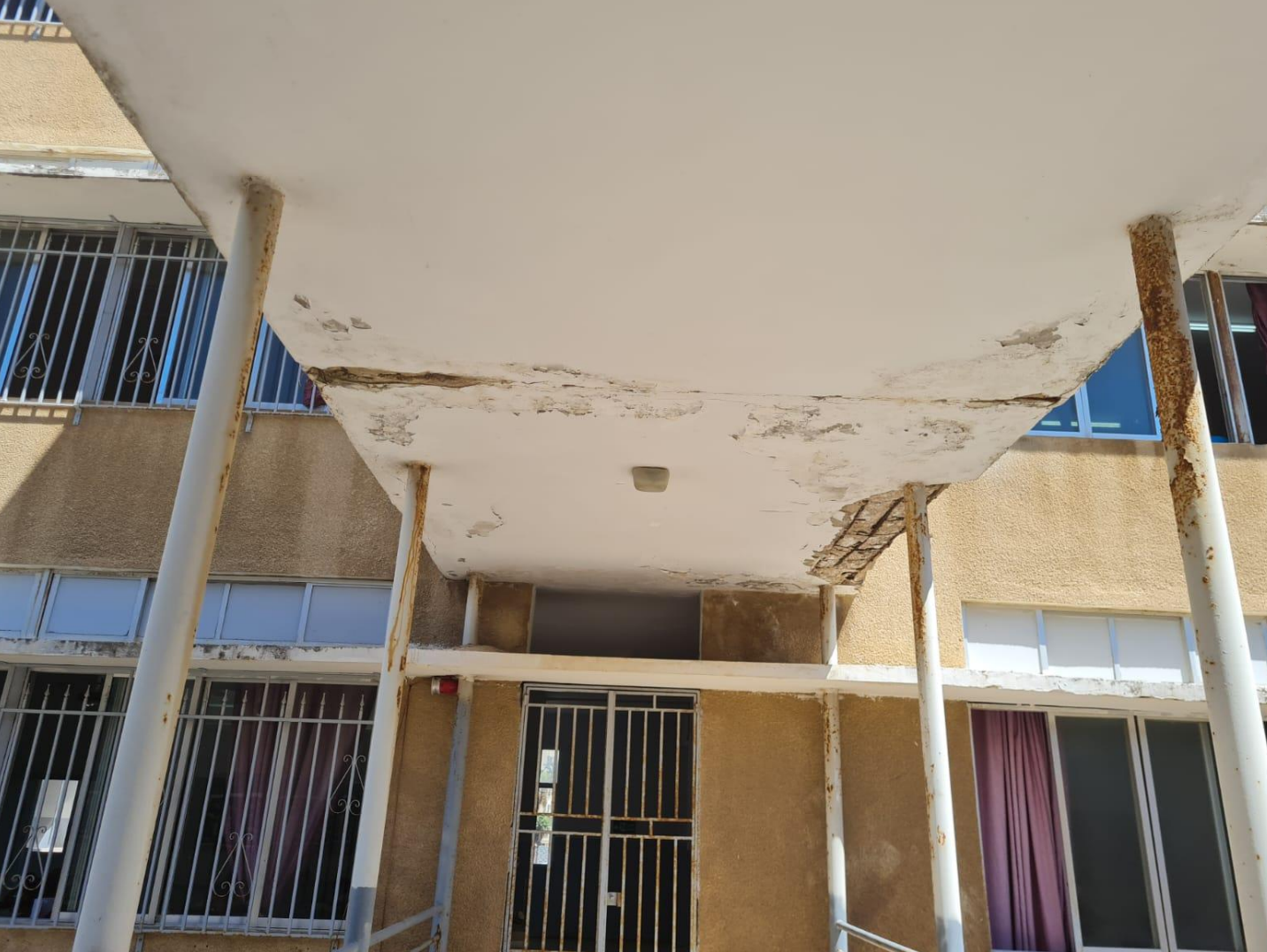by Monica Jubayli, AWC Lebanon and FAWCO RC 9
One of the most catastrophic economic crises globally in 150 years, exacerbated by the pandemic and the Beirut Port explosion of August 2020, has had a devastating impact on the Lebanese education sector. During the pandemic, as schools switched to online learning, many students could not participate because they had no access to either a computer, electricity or the internet. The result was the same – no learning took place. The Beirut Port explosion damaged 280 schools, making access to education difficult in the area affected by the blast. Sadly, the Lebanese reputation for excellence in education is slowly eroding as the country’s infrastructure is crumbling. There is a real fear that this generation of school children will be unprepared to meet the demands of the future.

Computer lab with outdated equipment
So, what is happening in Lebanon to create this national tragedy?
- The decrease in value of the Lebanese Lira (LL): October 2019 $1 = 1500 LL, as of this writing, $1 = 96,500 LL. The average teacher’s salary of 2,000,000 LL (in 2019 worth $1300) is now worth about $20.
- Capital control over bank deposits: You may have already heard about the frustration Lebanese people are experiencing resulting in recent “robberies,” where depositors have held up banks to withdraw their own money – no one else’s, just their own. All Lebanese, including teachers, are restricted in how much they can withdraw from their bank accounts on a monthly basis. Not able to meet their monthly expense obligations, and without access to their bank accounts, depositors have no options. For many, paying for higher education is not an option, leading to a high university dropout rate.
- A brain drain means professionals and skilled workers who can are leaving Lebanon: In 2022, nearly 25 out of every 1000 people emigrated from Lebanon. Experienced and highly qualified teachers have left Lebanon for jobs in the Arab Gulf region and beyond. If schools are lucky enough to fill the vacancies, they are being filled by “teachers” without training or even experience.

Science lab now being used as storage space
- Inflation: Prices for fuel, food and other goods are surging globally; so, too, in Lebanon. One result is that an increase in school fees is driving private school students into public schools and public school students out of school as inflation in Lebanon hit 189.67% in February 2023. Teachers, many of whom have the same salaries as in 2019, cannot afford to pay for gas to drive to work, let alone support their families. For this reason, the public school teachers have been on strike, over three months last year and another three months this year, with no end in sight.
- Power cuts: Government electricity only provides between 1 and 3 hours of electricity per day, so residents must rely on diesel generators, or if they are lucky, solar energy to power their homes and businesses. With diesel expenses over 50% of a school’s budget, many schools have opted to not use their generators, or pay the generator membership fees, meaning the schools are literally working in the dark. The administration is unable to function, computers and vocational equipment which need electricity are no longer being used, which means students are woefully undertrained.
- Refugee population: Lebanon hosts the largest number of refugees in the world per capita, and the number of refugees is increasing, as Lebanese join Syrians and others in escaping the country, often with tragic results. Educational resources are stretched to the limit. One positive aspect is that many Lebanese public schools are hosting refugee community students in the afternoons, funded by UNICEF and other international NGOs, which means teachers are being paid in US dollars, giving them a salary boost. Unfortunately, not all refugee or local children are able to attend school at all, resulting in thousands of children at risk of becoming child laborers or entering into early marriage.

Former classroom used for storage
- Corruption: Corrupt power brokers, inside and outside the government, are subverting the investigation into the Beirut port explosion. In addition, there has been no president for the last six months and the prime minister is in a caretaker role while politicians, living off a bank-generated Ponzi scheme, are unable to address the dire needs of citizens because they are arguing over whether or not to change to summer time. (It’s now been resolved, the clocks did spring forward, but it is seen as a distraction from the real excesses of the government and the decreased value of the currency.) Without an effective government, no educational reforms can be enacted, no national plan to remedy the years of learning loss can by tackled. Public schools, because they are dependent on the national budget, suffer more than the private schools, which can cope by adjusting their tuition fees and relying on donors, such as alumni. The Lebanese University system, which previously acted as a great “melting pot” of students from different areas of the country, religious sects, and political backgrounds in a safe public space, has suffered. As these spaces have been politicized, governance of Lebanese University, even including academic matters, has been influenced by partisanship.
- Threat of Israeli retaliation or worse: Rockets fired from Lebanon into Israel have resulted in Israeli retaliation as they send their own rockets into Southern Lebanon, exacerbating an already difficult situation and unnerving the population along the border, who all wonder if it will explode into another war. If Israel decides to invade Lebanon, one can only imagine how it would affect all aspects of Lebanese daily life, including education, which will take a back seat to survival. In such a case, the lost generation is all but doomed to become a reality.
- Mental health issues: One overlooked result of the deteriorating economic situation is the toll it is taking on the mental health of both teachers and students. The stress is enormous for teachers, whose salaries do not even cover their transportation costs, let alone the worry of how to provide for their families. Students also feel the emotional turmoil their parents and families are going through.
- Unsafe school infrastructure: Public school budgets can barely cover the cost of electricity, paper and other supplies, let alone make repairs to crumbling infrastructure. Sadly, one student died and another was injured when a ceiling collapsed at a public school in North Lebanon.

Crumbling infrastructure in schools
I recently attended a webinar, Revitalising Lebanon’s Education, hosted by Lebanese International Financial Executives (LIFE). Although it provided a sobering reality check on the crisis of Lebanon’s education sector, there were solutions on the horizon. Comprehensive reform is needed, both short and medium term.
- Strengthen regulatory systems by impartial actors.
- Improve data collection to formulate remedial actions.
- Reorganize the number of schools and optimize the available resources.
Sadly, the implementation of these suggested solutions seems far off as Lebanon struggles to prevent learning loss and the resulting generational disaster.
Photos by Monica Jubayli


